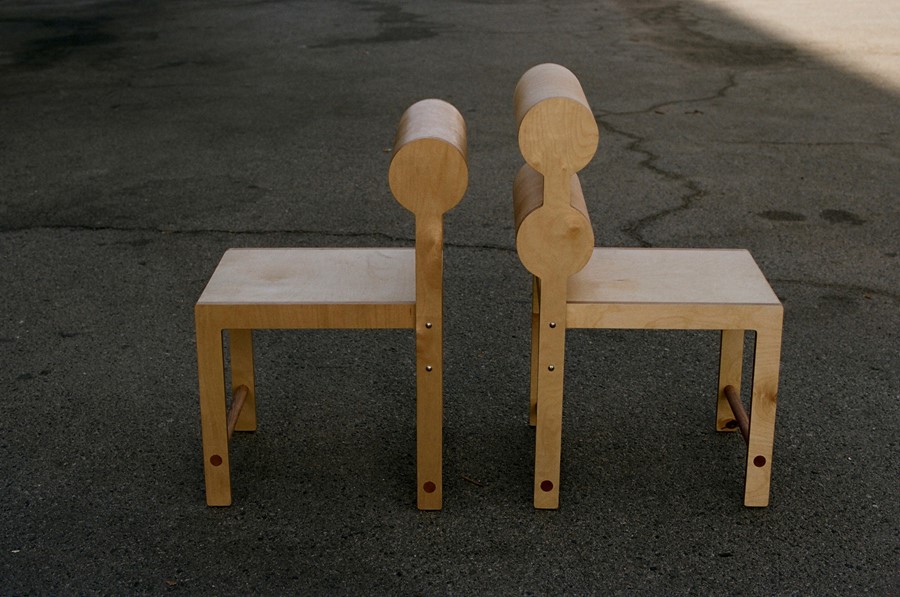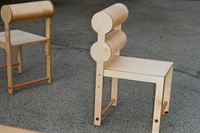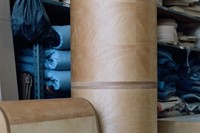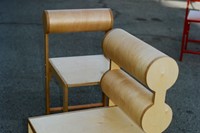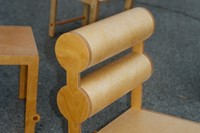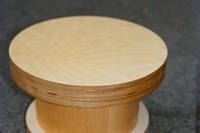We speak to Shin Okuda, founder of furniture design studio Waka Waka, about his distinctive pieces hand-crafted from baltic plywood
- Who is it? Waka Waka, an LA-based furniture and design studio founded by Shin Okuda
- Why do I want it? Functional, bespoke pieces – hand-made in baltic plywood by Okuda himself – inspired by Japanese design principles and the aesthetic of the Memphis Group
- Where can I find it? At Iko Iko, lookatwakawaka.com and smalloffice.info
Who is it? Shin Okuda – founder of furniture and design studio Waka Waka – hails from Japan, but re-located to Los Angeles 20 years ago. “I had been offered a very weird, odd-job in Arizona,” he explains. “It was as a travel agent. Back then there were many Japanese businessmen who went to Scottsdale to play golf. So I was just attending to the golfers. I stayed in Arizona for two months and after that I just moved to LA to see how things would go.”
Then, from 2003 onwards, Okuda found employment fabricating sculptures for fine artists. “I worked at different art studios for a few years; in 2009 I started making my own things, but it wasn’t sculpture – I started making furniture.” The same year, Okuda met his wife Kristin Dickson, who had newly opened a retail space on Sunset Boulevard called Iko Iko. “When it opened I went to see the store, and I became friends with her, and then started making furniture for her events. People started becoming interested in purchasing it, and Kristin said that I should come up with a name for what I do,” says Okuda. “I wanted to make something that would go with the name Iko Iko, and we were listening to the Fela Kuti song Waka Waka in the car. We both immediately said ‘that’s exactly the right name!’”
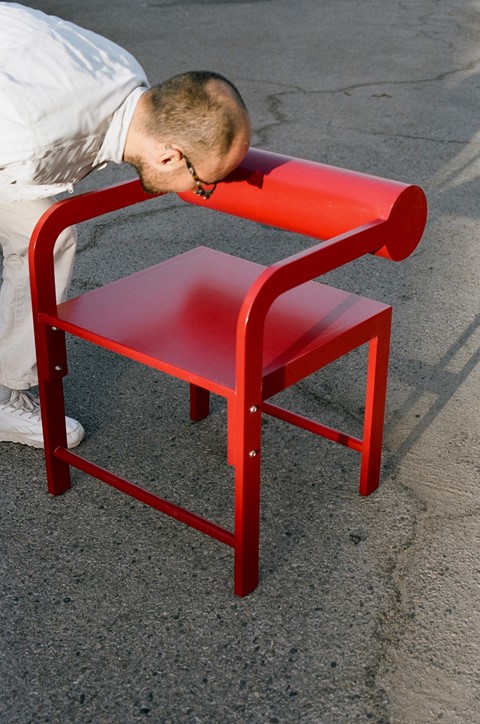
Why do I want it? Okuda’s work – ranging from chairs and coffee tables to large-scale shelving units – is all hand-crafted from baltic birch plywood. “This material comes from Japan – it’s really plain and white, with not much grain. Because the wood doesn’t have much character, I think of it like a blank sheet of white paper,” he says. Subsequently, the bespoke pieces available to purchase from Waka Waka easily slot into varied residential and commercial spaces, without clawing for attention amongst existing interiors.
Despite a penchant for simplicity, Okuda’s work is far from dull, thanks to an injection of Sottsassian whimsy in some of the cylindrical design elements. “While I like Bauhaus and the simplicity of the architecture of a Japanese tea room, I also really like the Memphis Group,” he reiterates. Subsequently, Okuda has recently begun experimenting with injections of colour through lacquered paints and formica – though this isn’t without its difficulties. “I’m actually colourblind, so my wife has to help me! So I kind of avoided using colours before – but it has been working out really well so far.”
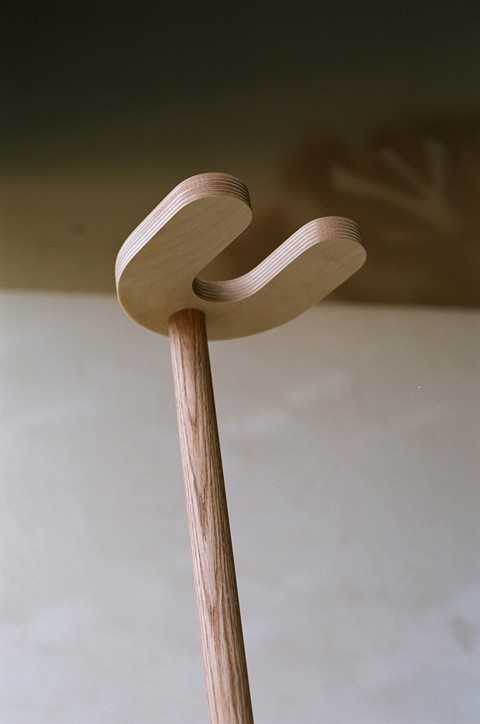
In the nine years it has been up and running, Waka Waka has garnered a cult following, mostly through word of mouth. “People usually come to me because they have seen my work online or in real life,” Okuda explains. This was the case for the Posternak Twins, Tanya and Zhenya, who saw Waka Waka’s chairs on Instagram and were immediately interested in a collaboration (the result of which illustrates this feature). “It all goes back to spotting one of his chairs in the depths of Instagram,” they explain. “A year or so later we both met Shin at his studio in Frogtown, Los Angeles, and he was so direct and warm with a great sense of humour and a pair of dusty Reeboks! We love the elegance and functionality of the pieces Shin makes – it’s a sincere simplicity that is just is so hard to find elsewhere.”
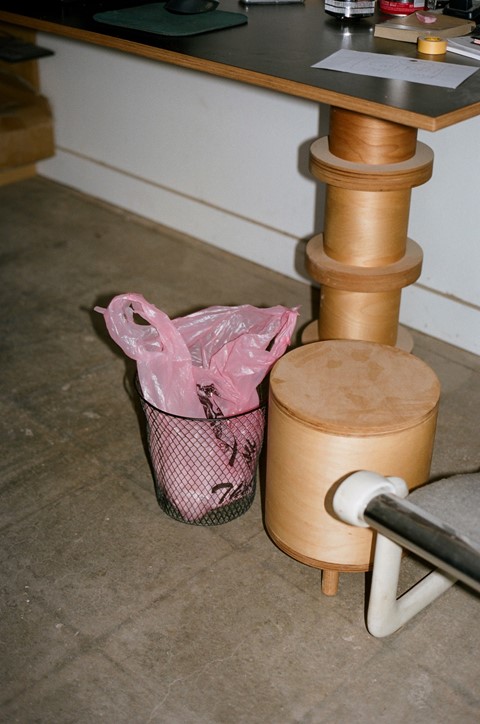
Where can I find it? At lookatwakawaka.com, where Shin Okuda also takes bespoke commissions for residential and commercial spaces, along with Iko Iko and smalloffice.info.
